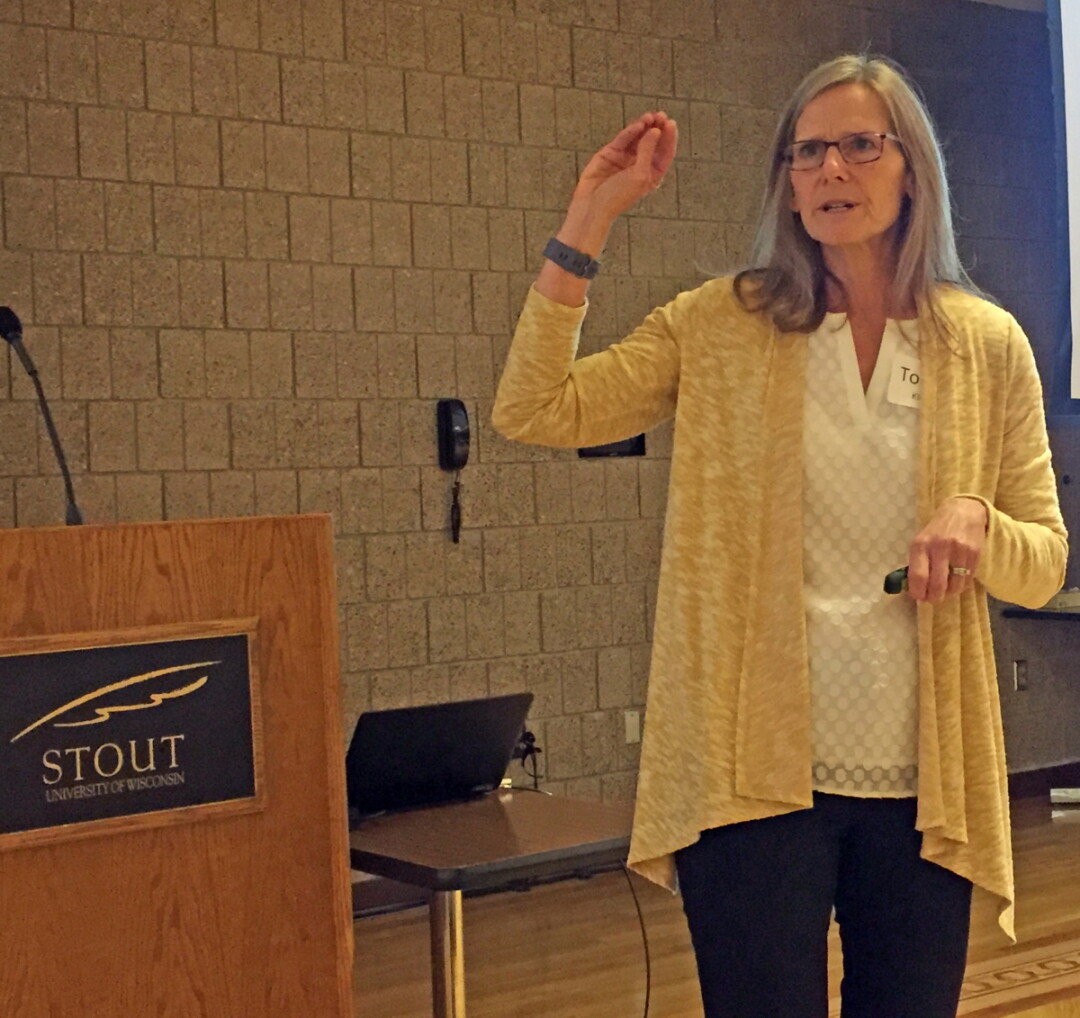Speakers at UW-Stout Summit Say Supportive Adults and Calm, Respectful Environments Help Create Resiliency

When children have suffered childhood traumas, their brains don’t care about math. They are just trying to survive.
The K-12 Healthy Minds Summit held at UW-Stout in July and focused on fostering emotional health and resiliency in schools. About 75 people attended. It was the first program of the Initiative to Create the UW-Stout Center for the Study and Promotion of Health and Wellbeing.
The two speakers were spouses John Klem, professor and program director of the clinical mental health counseling program, and Tonya Klem, school psychologist for the Ellsworth Community School District and owner of K12 Psychoeducational Services.
“Trauma is one of those words getting thrown out a lot lately,” John Klem said. “All of us have had bad things happen. When it becomes trauma is up to the client to decide. Perceptions matter greatly. It’s very individual specific.”
Childhood traumas can include child abuse, neglect and violence. According to statistics:
• 60% of adults report experiencing abuse or other family dysfunction.
• 26% of children will witness a traumatic event before the age of 4.
• One in 10 children will be sexually abused before the age of 18; 1 in 5 to 1 in 7 girls will be sexually abused by 18.
• Adverse childhood experiences are linked to risky health behaviors, chronic health conditions, and low life potential.
In adverse childhood experiences, babies’ needs are not met, and the hormones created change the way their brains are wired making them more inclined to fight, flee, or freeze when they are triggered into an emotional response. Those triggers happen more often and at a deeper level, John Klem said.
“We know trauma changes the physical brain,” Tonya Klem said. “The first three years is the most susceptible and has the most influence on changing the brain structure.”
Children who have a nurturing, supportive adult in their lives can develop resiliency. Having someone who knows students, greets them name, and offers a safe and predictable environment helps.
It is essential that educators practice self-care and have insight into their own emotional triggers, so they can respond rather than react to students with adverse childhood experiences.
When children are frustrated and exchanges occur, Tonya Klem suggested teachers remain calm, create an environment of respect, listen and reflect on what children are saying, and use kindness when delivering hard-to-hear news.
“Give the students a voice,” Tonya Klem said. “Treat them like they are important. Let them be seen and heard.”

Executive functions must be taught and developed in children improving resiliency and learning. In children ages 3 to 5, imaginary play such as Simon Says, matching and sorting games, and cooking can help develop executive function skills. Card games including Uno, or the game Red Light, Green Light and singing in rounds can help in children ages 5 to 7. From ages 7 to 12, card games such as Spades, organized sports, and video games can help improve executive functions. In adolescents, goal setting and planning and sports are some skills that help.
Cristy Linse, the director of the initiative, said part of the reason for the summit was to help educators learn how adverse childhood experiences impact schools and how to cope. “Together we can strive to decrease the stigma and increase empathy,” Linse said. “We can impact mental health and the people in our community.”
To learn more about efforts to create a Center for the Study and Promotion of Health and Wellbeing at UW-Stout, visit tinyurl.com/UWStoutWellbeing.


















